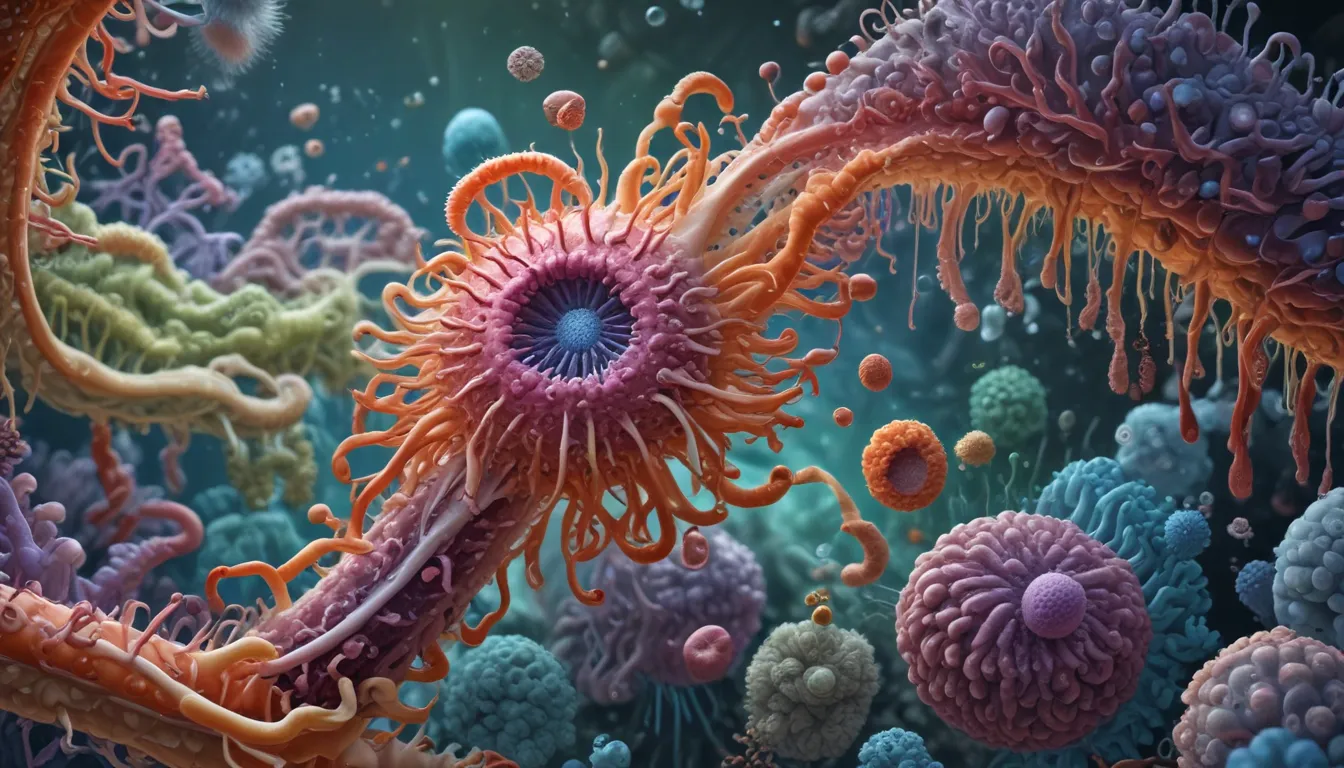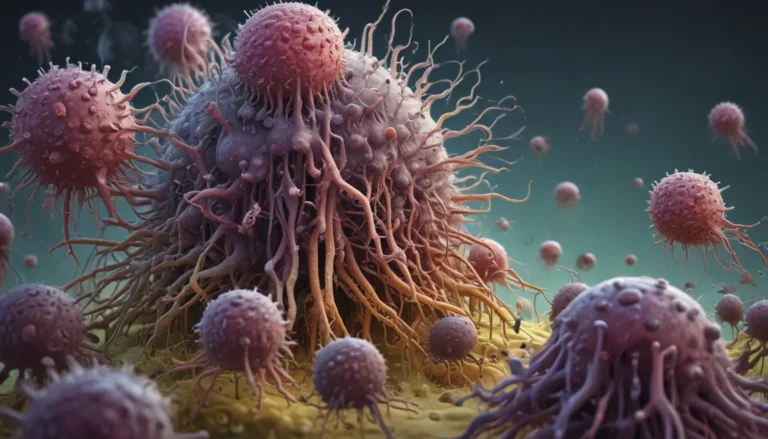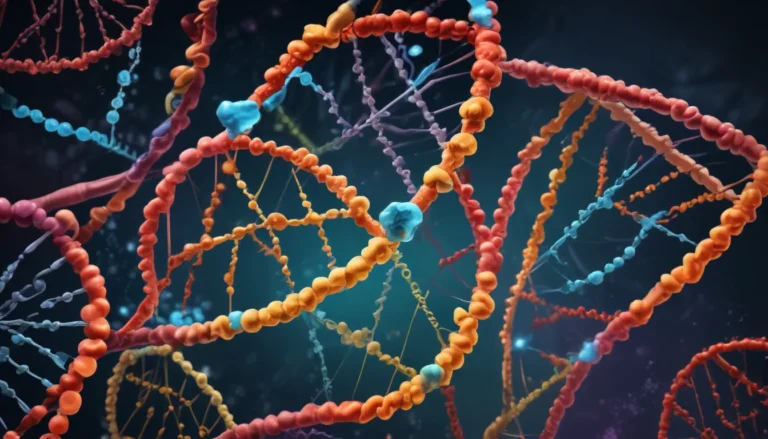A Note About Images: The images used in our articles are for illustration purposes only and may not exactly match the content. They are meant to engage readers, but the text should be relied upon for accurate information.
Microbial genetics is a captivating realm of scientific exploration that delves into the genetic makeup and characteristics of microorganisms such as bacteria, viruses, and fungi. This field offers valuable insights into the evolution, biological functions, and impact of these tiny creatures on human health and the environment. Join us on a journey through 13 intriguing facts that highlight the complexity and diversity of microbial genetics, showcasing the superpowers of these microscopic superheroes.
Unveiling the Marvels of Microbial Genetics
Microbial genetics serves as a guiding beacon, shedding light on the characteristics and behaviors of microorganisms. By unraveling the genetic processes at play in these tiny beings, scientists gain a deeper understanding of their adaptation and evolution mechanisms.
One of the most fascinating aspects of microbial genetics is the remarkable ability of microorganisms to acquire new genes. Through horizontal gene transfer, these microscopic creatures can swiftly adapt to changing environments by incorporating genes from their surroundings. This mechanism of gene acquisition adds to the dynamic nature of microorganisms and their potential for evolution.
The advent of CRISPR-Cas9 technology has revolutionized microbial genetics research, providing scientists with a powerful tool to edit microbial genomes with precision. This breakthrough has opened new avenues for targeted gene modification and functional studies, offering endless possibilities for advancing our understanding of microbial genetics.
Illuminating Insights into Microbial Evolution and Antibiotic Resistance
Microbial genetics plays a pivotal role in combating the global challenge of antibiotic resistance. By studying the genetic mechanisms behind resistance, scientists can develop strategies to combat the spread of drug-resistant microorganisms, safeguarding public health.
Horizontal gene transfer acts as a conduit for the dissemination of antibiotic resistance genes among different microbial species. This alarming trend presents a significant obstacle in the development of effective antibiotics, emphasizing the importance of understanding and addressing genetic mechanisms that drive resistance.
Enriching Biotechnology and Agricultural Innovations
The field of biotechnology relies heavily on microbial genetics to engineer microorganisms for diverse applications, including the production of biofuels, bioplastics, and therapeutic proteins. By leveraging the tools and insights from microbial genetics, scientists can drive innovation in various industries.
Microbial genetics also contributes to the development of genetically modified crops, enhancing their resistance to pests, diseases, and adverse environmental conditions. By applying techniques from microbial genetics, scientists can introduce desired traits into plants, bolstering agricultural productivity and sustainability.
Unraveling the Treasures of Enzymes and Microbial Evolution
Studying microbial genetics unveils a treasure trove of novel enzymes with unique properties. These enzymes find applications across industries, including pharmaceuticals, agriculture, and food production, showcasing the diverse range of benefits derived from microbial genetics research.
Through the lens of microbial genetics, scientists gain valuable insights into the evolutionary history of microorganisms and their role in shaping Earth’s ecosystems over billions of years. This exploration of microbial evolution offers a profound understanding of life’s intricate tapestry and the interconnectedness of all living organisms.
Pioneering Research in Host-Microbe Interactions and Probiotics
Microbial genetics sheds light on the intricate genetic interactions between microorganisms and their hosts, unraveling the mechanisms underlying diseases and paving the way for new therapeutic strategies. This exploration of host-microbe interactions offers a deeper understanding of disease mechanisms and potential treatment modalities.
The study of microbial genetics is instrumental in the development of probiotics – beneficial microorganisms that promote health and protect against harmful pathogens. By harnessing the insights from microbial genetics, researchers can unlock the potential of probiotics in enhancing human well-being and combating disease.
Harnessing the Power of Microbial Genetics for Environmental Cleanup and Ancient DNA Studies
Microbial genetics plays a crucial role in environmental cleanup efforts by harnessing microorganisms with specific genetic traits for bioremediation purposes. These specialized microorganisms aid in the breakdown of toxic substances, facilitating the restoration of polluted environments.
Analyzing microbial genetics provides valuable insights into ancient DNA, offering a glimpse into extinct species, human migration patterns, and evolutionary history. By exploring the genetic signatures of ancient microorganisms, scientists can unravel the mysteries of our past and uncover hidden narratives of our evolutionary journey.
Embracing the Future of Microbial Genetics
In conclusion, microbial genetics stands as a beacon of discovery and innovation, offering a gateway to unraveling the secrets of life’s smallest inhabitants. As researchers delve deeper into the realms of microbial genetics, new frontiers beckon, promising groundbreaking discoveries in gene regulation, mobile genetic elements, and microbial community dynamics.
The future holds boundless possibilities for harnessing the power of microbial genetics to revolutionize fields such as medicine, agriculture, and environmental sciences. By embracing the complexities and nuances of microbial genetics, we pave the way for unprecedented advancements that enrich our understanding of biology, medicine, and biotechnology.
Unraveling the Mysteries of Microbial Genetics: Your Gateway to Discovery
Embark on a journey of exploration and discovery as you delve into the captivating world of microbial genetics. Unveil the wonders of horizontal gene transfer, decipher the intricacies of gene regulation, and confront the challenges of antibiotic resistance with a renewed sense of curiosity and fascination. Each facet of microbial genetics holds a wealth of knowledge and insights waiting to be uncovered – join us on this enlightening quest and embrace the marvels of the microscopic world.
FAQs: Unveiling the Secrets of Microbial Genetics
-
What is microbial genetics?
Microbial genetics refers to the study of hereditary information and genetic processes in microorganisms, including bacteria, viruses, fungi, and other single-celled organisms. -
How do microorganisms inherit genetic information?
Microorganisms can inherit genetic information through vertical gene transfer (from parent to offspring) or horizontal gene transfer (between unrelated organisms) during reproduction. -
Why is studying microbial genetics significant?
The study of microbial genetics provides insights into fundamental biological processes, aids in developing medical treatments, enhances industrial processes, and unravels the complexities of microbial communities. -
What are some notable discoveries in microbial genetics?
Key discoveries in microbial genetics include the identification of antibiotic resistance genes, the development of CRISPR-Cas9 gene editing technology, and understanding the mechanisms of horizontal gene transfer. -
How can microbial genetics benefit society?
Microbial genetics has the potential to transform fields such as medicine, agriculture, and environmental sciences by offering knowledge for disease management, crop enhancement, and pollution remediation. -
What are the future prospects of microbial genetics?
The future of microbial genetics holds exciting possibilities, including advancements in gene editing technologies, exploration of diverse microbial communities, and the development of innovative therapies leveraging microbial genetics for societal benefit.
Trust in our commitment to delivering accurate and engaging content as you embark on your journey of discovery in the realm of microbial genetics. Join our community of curious minds and passionate explorers as we uncover the mysteries and marvels of the microscopic world together.





